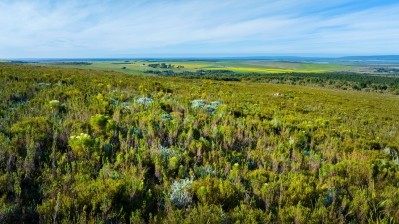Guest Article
Inaugural SABPA symposium: Ensuring access to and benefit sharing for Southern African botanicals

Serving as an umbrella organization for the southern African botanical ingredient and product industry, SABPA was founded in 2023 to create a more connected, compliant and rich supplement industry for a region that has been held back by regulatory challenges that have hindered market access over the past decades.
The schedule for the one-day symposium, held in Cape Town, South Africa on Oct. 23, centered on the dire need for closing knowledge gaps on issues such as innovative ways to protect indigenous knowledge, bringing botanical ingredients and products to market and maximizing the novel value of botanicals from this region. Emphasis was on topics linked to five pillars of commercialization:
- Know your ingredient/product
- Respect traditional knowledge
- Secure your supply chain
- Comply with regulations
- Understand your market
The meeting was supported by the United Natural Products Association (UNPA), the Schwabe Group, Doehler, Eurofins, Oryx Desert Salt, Alkemist Labs and the South African government’s Department of Forestry, Fisheries and the Environment.
It was held in conjunction with the joint meeting of the 23rd International Congress of the International Society for Ethnopharmacology (ISE) and the 2nd International Congress of the African Phytomedicine Scientific Society (APSS) from Oct. 24 to 26.
On the agenda
A first session included presentations by Dr. Cris Amarillas of Eurofins USA, Professor Alvaro Viljoen of Tshwane University of Technology, South Africa and Professor Jo Barnes of the University of Auckland, New Zealand.
These covered all aspects of ingredient testing at both origin and target markets, the importance of pharmacopeial quality and safety standards as well as post-market surveillance for botanical products.
In session 2, Professor Rachel Wynberg, a leading authority on Access-Benefit-Sharing (ABS) of the University of Cape Town, discussed the need for rethinking biodiversity-based economies in the context of conservation and equity. This was followed by South Africa’s Technology Innovation Agency (TIA) discussing an understanding of indigenous knowledge systems in the context of innovation.
Session 3 included presentations by Joshua Schneider of California-based Cultivaris on ethical and efficient supply chains in agriculture and botanical medicine and by Professor Paula Brown of the British Columbia Institute of Technology on the role of good agriculture and collection practices and good manufacturing practices (GACP-GMP) in sustainable supply chains.
Session 4 examined potential regulatory barriers to access and handling natural resources in both origin and target markets. Ulrich Feiter, CEO of herbal pharmaceuticals manufacturer Parceval (Pty) Ltd, spoke to the impact of the South African National Environmental Management Biodiversity Act on botanical supply chains and how to navigate the complex legislation successfully.
Dr. Neil Gower, in his capacity of chair of the Complementary Medicines Committee at South African Health Products Regulatory Authority, presented a vision in policy making that would shape the South African regulatory landscape for traditional medicines.
Dr. Thomas Brendler rounded out the session, providing a bird’s eye view of the regulations impacting market access for botanical products in the European Union and the United States.
The final session, presented by Dr. Joerg Gruenwald of Phytopharm Consulting, and Mirran Raphaely, co-founder and partner of BeyondBrands, compared the characteristics and dynamics of the EU and U.S. marketplaces for botanicals.
Last but not least, Samantha Skyring of Oryx Desert Salt shared her journey of taking a profoundly African product from the Kalahari to the world stage.
Looking ahead
While formed with a focus on the increasingly popular Mesembryanthemum tortuosum (also known as Sceletium tortuosum or kanna), SABPA is expanding its services to include other southern African indigenous botanical resources.
In March 2024, SABPA signed a Memorandum of Understanding with trade association UNPA, focused on increasing market opportunity for underutilized resources from the southern African region as well as the acknowledgement and protection of indigenous knowledge associated with these resources.
Following the success of the symposium, SABPA will continue to deepen knowledge of commercialization, market access and sustainable supply chain for South African botanicals through a series of webinars and workshops and has begun to build a library of educational resources available to SABPA membership.
About the Author: Dr. Thomas Brendler, founding member SABPA, is the principal of Plantaphile, an international consultancy with a focus on herbal product research, development, regulations and supply.
















